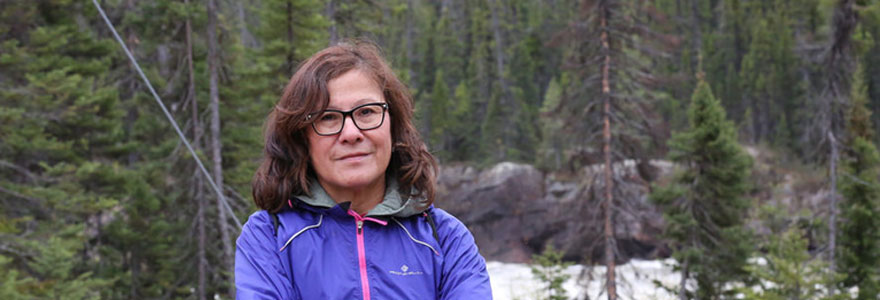News and Updates
Contact
Faculty of Social Science
Social Science Centre
Room 9438
Western University
T. 519-661-2053
F. 519-661-3868
E. social-science@uwo.ca
Diana Lewis joining Department of Geography, will teach in First Nations Studies program
June 05, 2018
Photo submitted/Story by Rob Rombouts
Diana Lewis is joining the Department of Geography and will teach courses in the First Nations Studies program.
Lewis is coming from Dalhousie University, where she was the inaugural coordinator of, and lecturer in, the Indigenous Studies Program. She is Mi’kmaq from Sipekne’katik First Nation in Nova Scotia, and holds a Master of Resource and Environmental Management degree. Her PhD research focuses on resource development, and the impacts of resource development on the health of Indigenous peoples, using a methodology that combines both Indigenous and western-based sciences.
For the past seven years, her research has focused on the impacts that a pulp and paper mill has been having on the health of Pictou Landing First Nation. Government has never investigated the health concerns of the community, despite the community being exposed to contaminants for 50 years. The community had no baseline health data to evidence how the community has been impacted over the years. Together, with the women of the community, Lewis developed an environmental health survey to collect data for the community , using a methodology guided by the principle of Etuaptmumk, or Two-Eyed Seeing, which calls upon researchers to approach research using Indigenous knowledge and Western knowledge, drawing upon the strength of both approaches.
“Now they have their own data, data which belongs to the community, to show how their health has been impacted,” said Lewis.
“A community based approach is important when doing research with Indigenous communities,” said Lewis. “It allows communities to be equal partners in what the research questions are, so the research is more relevant to their needs.”
“When you restrict research to a Western perspective, it can’t go deep enough to get to the Indigenous worldview,” said Lewis. “A community-based approach can honour an Indigenous methodology, and gives you space to bring in how Indigenous people relate to the land and environment around them”.
“The relationship to the land and environment is sacred, and when it is severed, it is traumatizing,” said Lewis. “I am, in part, using quantitative analysis to demonstrate the strength of that relationship.”
Lewis is excited to come to Western; “Western is a research intensive university, and moving to Western connects me to researchers I’m more directly involved with, such as Chantelle Richmond and Jamie Baxter,” said Lewis. She also looks forward to establishing collaborations with other Western researchers.
Lewis’ future research will focus on the development of an Indigenous Environmental Health Risk Assessment Tool.
Environmental Health Risk Assessment Tools are used by regulatory agencies, “but they do not get specific enough to reflect the worldviews of Indigenous populations,” said Lewis. “Indigenous populations are typically some of the most impacted communities in Canada.”
Lewis also plans to continue developing quantitative expertise. “Data is so needed in communities for evidence based research,” said Lewis.
Along with her research, Lewis will also be teaching courses in the First Nations Studies program.
Lewis will teach a course on historical issues, covering from pre-history to the 1969 White Paper, the Statement of the Government of Canada on Indian Policy. “History did not start when settlers arrived,” said Lewis. “We have a long history on this continent.”
“I welcome students from any number of faculties,” said Lewis. “I think it’s a history that students have not received, and when they take my courses, the most common reaction from students is ‘Why have we not been taught this before?’”
She will also teach a course on contemporary issues, starting with the 1969 White paper, and covering issues of Aboriginal title and rights, treaty rights, and continuing to current events, by building on the historical context of Canada’s relationship with Indigenous peoples in this country.
“I want to try to give students a context for the issues that are happening in our current times, and an understanding of how to be more critical of how media portrays Indigenous issues,” said Lewis.
“I really enjoy teaching these courses,” said Lewis. “You can really see the learning process evolving in students.”

